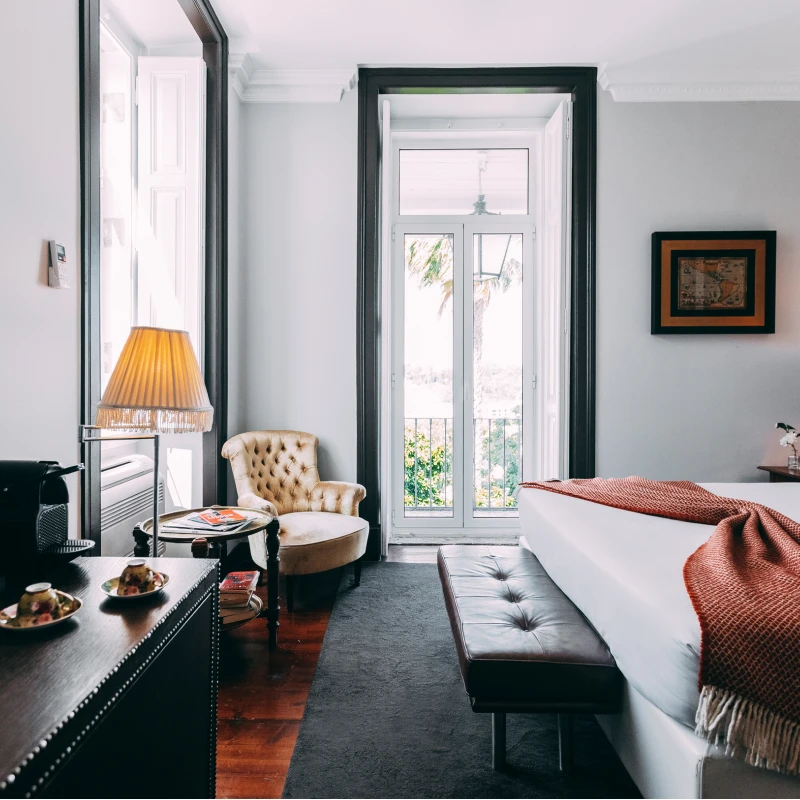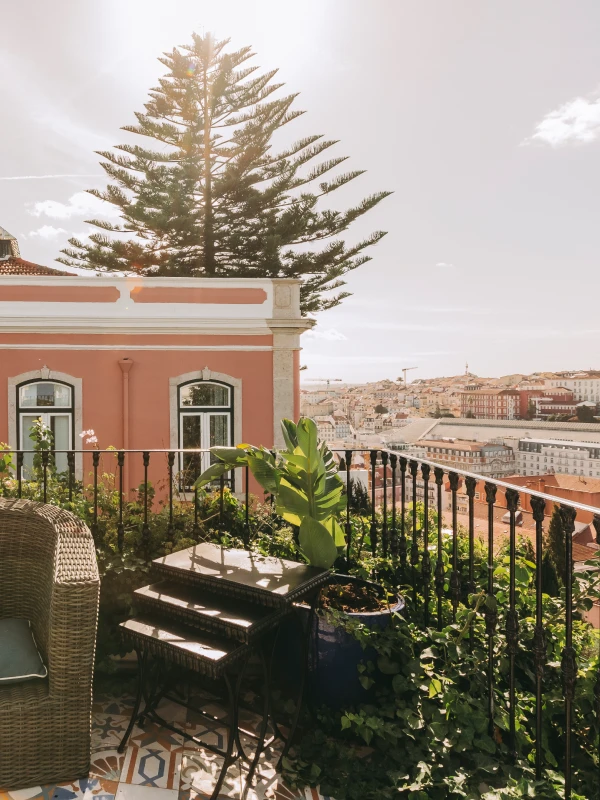Home > Dom Carlos I
Dom Carlos I
September, 1863 (Lisbon, Portugal) – February, 1908 (Lisbon, Portugal)
With its classic-contemporary décor inspired by King Carlos I, feel the comfort of this cozy and well-appointed room. From the lovely balcony, you will enjoy an almost panoramic view over Lisbon, as well as being able to view all outdoor areas of Torel Palace, including the pool and the outside bar.
The Master With View – D. Carlos I offers romantic charm for up to two guests. Decorated in rich red tones, the room features a Queen Size bed, two matching armchairs, and a coordinating rug that add warmth and elegance. The spacious private balcony offers delightful city views, creating an inviting space to relax.
The bathroom complements the room’s refined style, with a large shower and elegant finishes. Amenities include a Delta coffee machine, minibar, TV, free Wi-Fi, air conditioning, hairdryer, and safe. Complimentary coffee and water are provided throughout your stay for a comfortable and memorable experience.
See our other rooms in the Master with a View category
- Up to 2 People
- 26 m2
- Queen Size Bed
- Balcony
- City View
- Coffee Machine
- Mini Bar
- Television
- Free WiFi
- Air Conditioning
- Hairdryer
- Safe
- Offer of Delta Coffee and Water throughout your Stay









In Honor of...
Dom Carlos I

Dom Carlos I was King of Portugal from 1889 until his tragic assassination in 1908. Known as the Diplomatic and the Martyr King, he was a cultured and modern-minded monarch, with a deep interest in science, oceanography, and the arts.
He was the first Portuguese king to travel extensively within Europe, and he worked to strengthen Portugal’s diplomatic relations during a time of colonial tensions and growing republican sentiment at home. Passionate about marine science, he personally participated in oceanographic expeditions and earned international recognition for his work.
Dom Carlos’s reign, however, was marked by political instability, economic difficulties, and growing unrest. The monarchy became the target of republican movements and secret societies. On 1 February 1908, while returning to the royal palace, Dom Carlos and his eldest son, the Crown Prince Luís Filipe, were assassinated in broad daylight on the streets of Lisbon — an event that shocked the nation.
His death marked the beginning of the end for the Portuguese monarchy. He is remembered as a refined and tragic figure, a man of intellect and culture whose reign ended in violence, but who never ceased to believe in the potential of his country.









